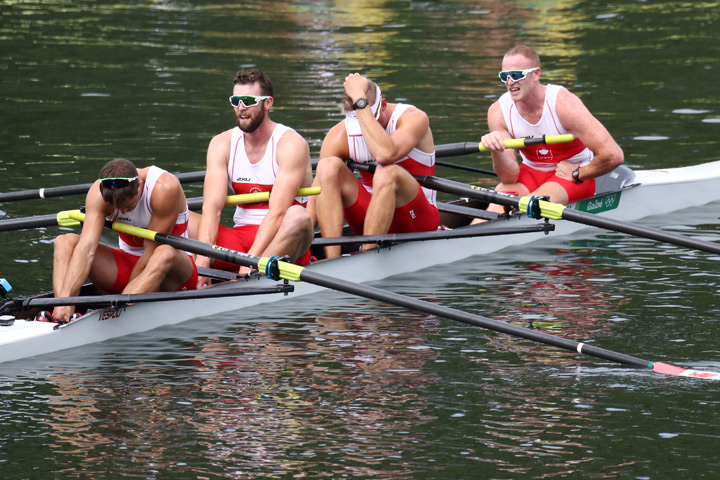Canada’s rowing team receives more funding than any other Canadian summer sport, but only managed to produce a single medal — and that has organizers and athletes worried about the future of the sport.

“Clearly not a good event for us in terms of our performance,” said Rowing Canada high performance director Peter Cookson. “There’s no hiding from that. We didn’t meet our expectations as a team. We didn’t perform the way we wanted to or expected to. All of the athletes are disappointed in their performance — they’re certainly accountable, just like all of us are.”
The problem isn’t a lack of money. In the four years leading up to the Summer Games in Rio, Rowing Canada received $17.4 million in funding from Own the Podium — a program set up to top up athlete funding, with the goal of getting more medals. That’s the most of any summer sport: compared to $13.3 million for swimming or $13.2 million for athletics.
Partly, that’s because rowing is an expensive sport, said Own the Podium CEO Anne Merklinger. And partly it was high expectations. “Rowing was identified as having multiple medal potential in Rio.”
The more athletes you have that could potentially medal, the more funding your sport gets, she explained. And funding to rowing vastly increased following the four-medal performance in Beijing in 2008. It increased again slightly after the two silvers in London, though Merklinger said that was largely due to a decision to also look at people who could potentially medal in five to eight years.

Get breaking National news
But with all that money, only Lindsay Jennerich and Patricia Obee managed to snag a silver in the women’s lightweight double sculls.
Dividing the crew
One of Canada’s most decorated boats — the men’s eight — did not even compete in Rio. Although it had won gold in 1984, 1992 and 2008, and silver in 2012, Rowing Canada decided to split it into two smaller crews: the men’s four and quadruple sculls — to double the chances at a medal. These boats finished sixth and eighth respectively.
Conlin McCabe, who was part of the men’s four in Rio, and formerly part of the silver medal-winning men’s eight crew from London, said Friday that this plan didn’t work very well.
“It definitely didn’t pan out at these Games,” he said. “You can look at it right away and go on first take: ‘This didn’t work.’”
He’s not sure the strategy should be totally abandoned though. “What if at the next Games both boats medal? What if at the next Games (after that) Canadian men’s rowing gets three medals, four medals? You’ve got to start the change and you’ve got to see it through.”
“I think we would be silly now to shift all the way back to the eight just because of not having success in the first attempt at the quad and four.
New budgets
Rowing’s dismal performance could mean readjustments to the sport’s funding, something that Merklinger says Own the Podium will be looking at as it begins to assess funding recommendations in October.
“The performances of all sports here in Rio are an important consideration,” she said, although funding decisions will ultimately be made on the basis of how many athletes could potentially medal in 2020 and 2024.
McCabe is worried about potential cuts though. “We know what’s at stake when we’re out there,” he said. “We’re trying to row our best race for ourselves as well, but we know that rowing in Canada depends on it, also, because that’s the way sport in Canada works with Own the Podium.”
“We know that we have to get medals as a team if we want to keep getting the funding we’ve been getting. I guess, yeah, now I am worried to see what happens with Rowing Canada.”
With files from the Canadian Press



Comments